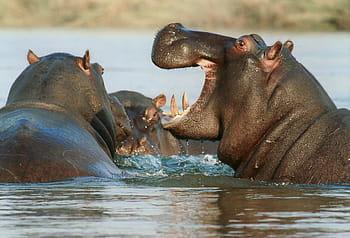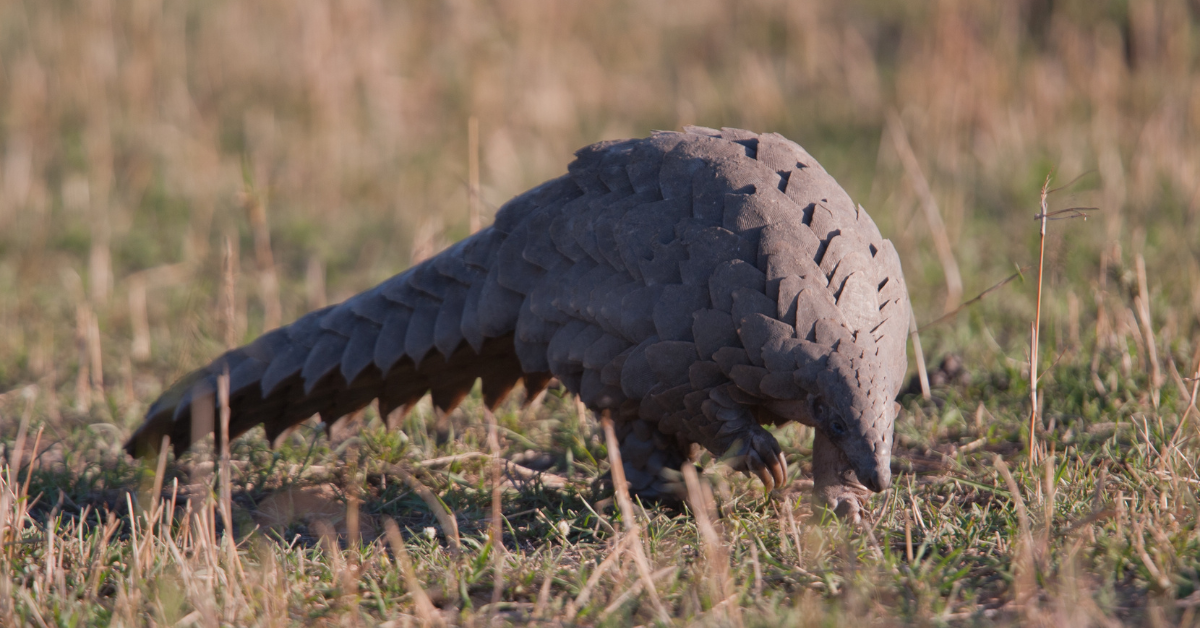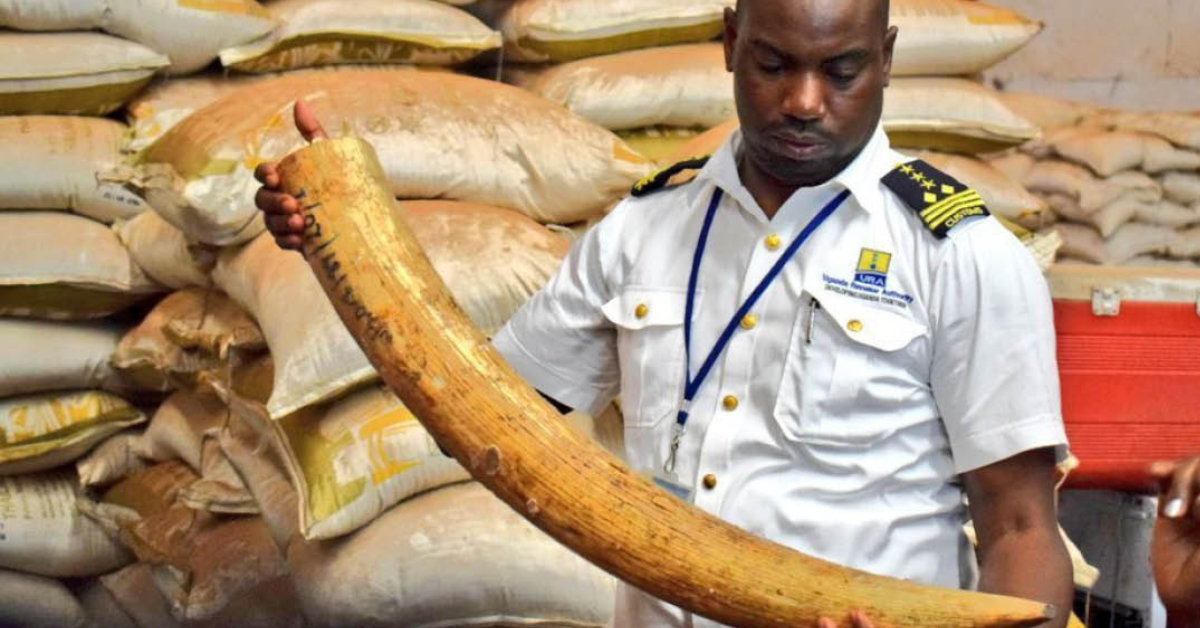
Does Illegal Wildlife Trade (IWT) affect building resilient wildlife economies across Africa?
26 Jul 2022
Whether for medicine, construction, food or culture, a good proportion of our trade economy and way of life relies entirely on wildlife products. Africa is a continent with diverse wild flora and fauna. For instance, Tanzania contains 20% of Africa’s large mammal population distributed over 17 national parks and other wildlife areas covering approximately 42,000km2 which forms 38% of the country’s territory. Botswana has the largest population of African elephants estimated at 130,000 in number as of 2021 and this makes Botswana the largest stronghold of African elephants (AWF, 2021). South Africa (SA) contains two-thirds of the world’s plant diversity and it’s recognised as among the earth's 17 mega-diverse nations and one of the ten nations for plant species richness globally.
Despite the abundant wildlife resources across Africa, illegal wildlife trade (IWT) continues and poses challenges to the wildlife trade sector. For example, AWF reports that “Escalating poaching is fueled by demand for ivory and ivory products, and as many as 35,000 elephants are slaughtered each year to feed the demand.” To build resilient and sustainable wildlife economies, it’s imperative to address IWT. IWT involves the smuggling of forest products both wood and non-wood forest products, poaching and trafficking of live animals, plants, and parts of animals. Some of the major illegal wildlife products sold include hippo teeth, pangolin scales, lion bones, ivory and live animals such as the three-horned chameleon, leopard tortoises, grey crowned cranes and the shoebill stork (Rossi, 2018).

Pangolin are the most illegally traded wild animals in Uganda.
Globally, between $7 and $23 billion per year is lost in IWT, making it one of the most lucrative illegal businesses (GEF, 2022). Namibia invests up to $17 million per annum to stop the IWT (USAID, 2020). Such investment could rather be used to support other developmental priorities. Uganda alone loses $509 million per year in IWT exports. This money could have been income for Uganda if the trade was legal. In Uganda the most illegally traded wildlife products are pangolins, pangolin scales and hippo teeth. About 4,000 tonnes of pangolin scales were seized by Uganda Wildlife Authority as of February 2022 (Ndagire, 2022).
IWT undermines sustainable economic development and threatens nature-based enterprise development as endangered and other iconic wildlife species are decimated through poaching. Illegal wildlife trade is reducing wildlife species population in Africa and globally, as wildlife poachers, wildlife traffickers involved in selling live wild animals, and highly organised criminal syndicates kill and sell wildlife products at any cost to meet consumer demand (TRAFFIC, 2019). A World Bank blog by Benoit Blarel states: “An elephant is poached for its tusks about every 30 minutes, an African rhino for its horn every 8 hours, one in five fish is caught illegally, and in certain countries, particularly in Africa and South America, 50% to 90% of timber is harvested and traded illegally. As much as 35% of the value of all illegal trade is estimated to come from rosewood.”
It should be noted that most countries in Africa are source markets for contraband whereas most destination markets are in America and Asia. China, Hong Kong, and Vietnam have been singled out as the main international destination markets for wildlife products smuggled from Uganda. Rossi (2018) highlighted that terrestrial smuggling routes for Uganda’s wildlife products now exist between her neighbours, Tanzania, Kenya, South Sudan, and the Democratic Republic of Congo (DRC). From DRC, illegal wildlife products can be exported directly through transit countries such as Sri Lanka, Singapore, and Malaysia to Hong Kong, Mainland China, and Vietnam. Alternatively, illegal wildlife products transit through Kenya, Tanzania, and South Sudan to the United Arab Emirates and Qatar and later to destination countries. The opening of intra-continental trade through the African Continental Free Trade Agreement, however, might help to contain illegal wildlife trade if countries put in place measures to curb it.

Uganda Revenue Officer displays seized ivory in 2019.
Penalties currently that could help mitigate IWT are lenient. A recent article in the Mail & Guardian reports that “In a case involving one pangolin carcass the sentence was a fine of just UGX300 000 ($84), in a case involving one live pangolin the fine was UGX1-million ($279) and in a case involving 3.62kg of pangolin scales the fine was UGX2-million ($559). In another case involving one live pangolin the sentence was just three months in prison.”
The fight against IWT is curtailed by rampant corruption. Corruption threatens the regulation and management of wildlife value chains. Corruption takes forms such as forged licenses, underreporting of contraband confiscated, authoring sale and transportation of mislabelled contraband as goods, influencing law enforcement to derail wildlife crime investigation and prosecution. Corruption facilitates illegal wildlife trade, and this undermines efforts to build resilient wildlife economies across Africa. It is imperative to enhance implementation of international policy on IWT, develop private sector partnerships, provide trade information and analysis, and scale up behavioural change initiatives aimed at combating IWT.
Dr Taddeo Rusoke, AWEI Fellow and Senior Lecturer at Nkumba University
We support the free flow of information. Please share:
More content
-

Leveraging free trade to boost Africa’s wildlife economies through wild-harvested products
Dr Wiseman NdlovuThe intra-Africa trade of wild products presents a unique intersection of economic opportunity and environmental conservation. With the...
2024Research -

Insights from the African Wildlife Economy Colloquium
Klarine SchutteThe inaugural African Wildlife Economy Colloquium, held from 4–6 November at Stellenbosch University, brought together a diverse group…
Articles -

Drivers of hunting and photographic tourism income to communal conservancies in Namibia
Mr Joseph Goergen …Hunting and photographic tourism provide ecosystem services that can facilitate conservation. Understanding factors influencing how tourism industries generate...
2024Research -

SANParks Vision 2040: A New Era for Conservation in South Africa
Ms Emily TaylorReimagining Conservation: SANParks' Vision 2040
South African National Parks (SANParks) has unveiled its ambitious Vision 2040, a…
Articles -

In defence of wild meat’s place at the table
Tim VernimmenQ&A — Conservation scientist E.J. Milner-Gulland
Sustainable and safe consumption of wildlife is possible, and important for those…
Articles -

The diverse socioeconomic contributions of wildlife ranching
Candice Denner…The diverse socioeconomic contributions of wildlife ranching are increasingly recognized as a vital element of sustainable development, particularly...
2024Research -

A conflict of visions: Ideas shaping wildlife trade policy toward African megafauna
Mr Michael 't Sas-Rolfes…The issue of wildlife trade is a major concern for the conservation of African megafauna, such as elephants...
2024Research -

Barriers to the Participation of the Traditional Leadership Institution in Promoting Rural Agricultural Development
Dr Wiseman Ndlovu…The Traditional Leadership Institution (TLI) is constitutionally recognised to promote rural development in South Africa. It works with...
2022Research -

Elephant in the Room - Why a trophy hunting ban would hurt conservation and development
Dr Francis Vorhies“Trophy hunting, if well managed, conserves wild species and habitats and enhances livelihoods in rural communities.” - Dr...
2024Briefs
Get updates by email
Through impactful research, stakeholder engagement, and professional development, AWEI is supporting the wildlife economy across Africa. Please subscribe for occasional updates on our work and forthcoming events.
Sign up for a quarterly dose of AWEI insights
In a complex and changing world, AWEI generates strategic ideas, conducts independent analysis on wildlife economies, and collaborates with global scholar-practitioners to provide training and expertise for biodiversity conservation, climate resilience, and inclusive economic opportunities in Africa.
